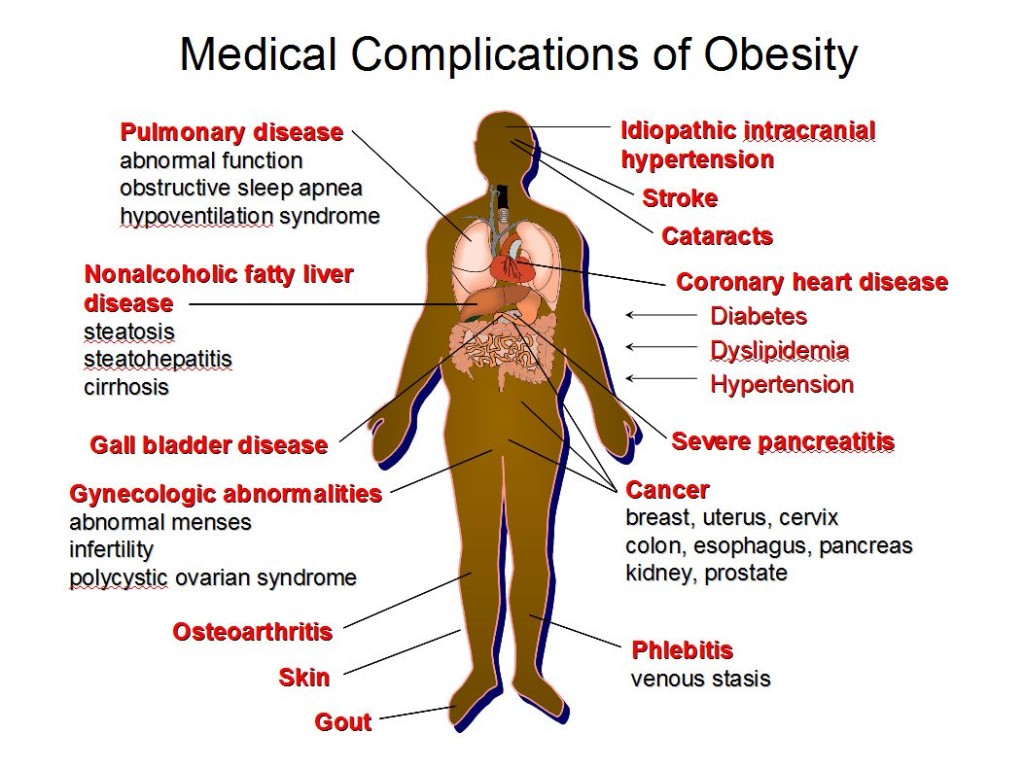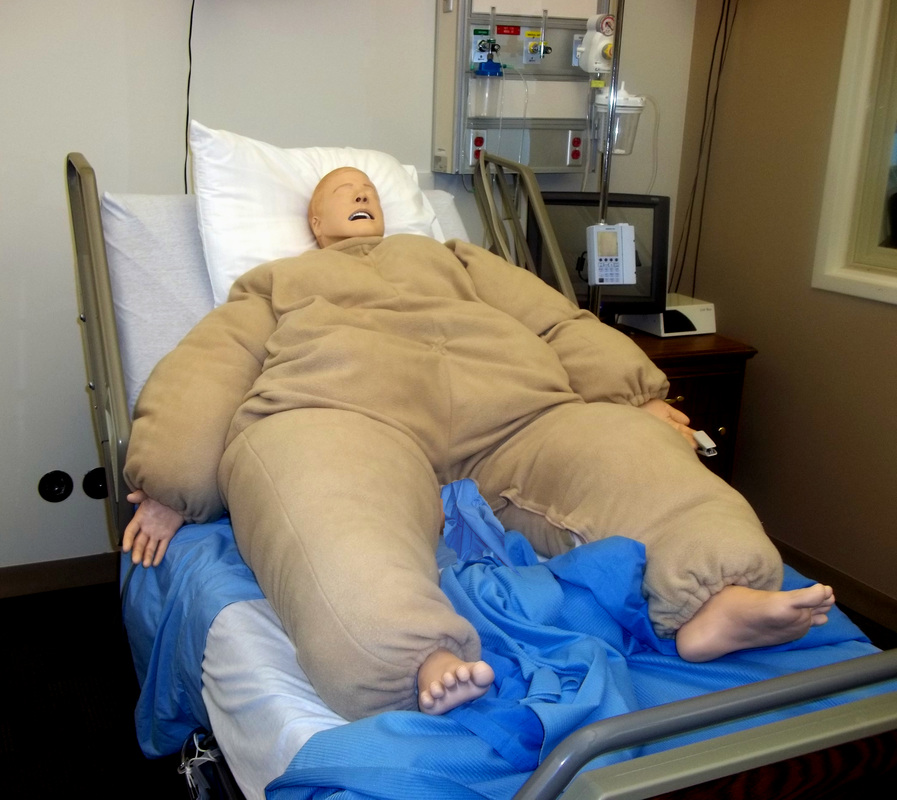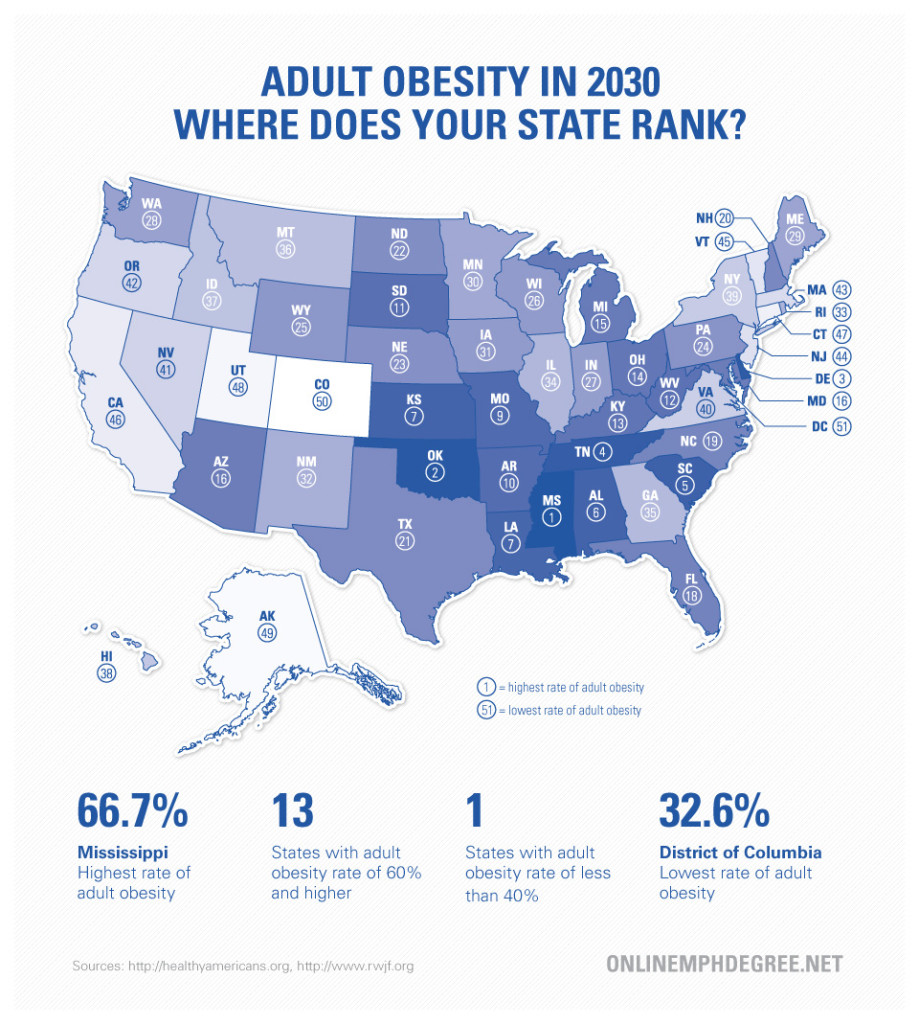As more Americans are growing obese – 36% – are obese according to the CDC – the American Medical Association in 2013 has adopted a policy that states that obesity is a disease. This requires a wide range of medical interventions to improve treatment and prevention.
This decision by the AMA means that people who work in the health care field will be caring for obese patients more than ever in the coming years. This will have a number of effects on the patients, of course, including higher rates of pulmonary disease, cancer, cataracts, diabetes, and stroke. But the obesity epidemic also will have an effect on people’s health care careers.
Obesity Effects on Healthcare Delivery
According to obesity expert Susan Gallagher Camden, PhD, MSN, RN, CBN, the larger physical size of patients will have many effects on health care delivery:
The size of the patient will greatly complicate how care is delivered, no matter where the care is provided.
Nurses and other health care professionals will be expected to be able to foresee and prevent many issues related to obesity – challenges with the skin, drug absorption, resuscitation, intravenous access and general mobility of the patient.
Health care professionals will need to address these issues in a compassionate manner.
Obesity in patients causes a number of complications in medical treatment that health care professionals will need to be prepared for. For instance, there are several negative effects on respiration caused by obesity, such as higher pulmonary blood volume, which can lead to a thicker airway wall, and can cut down the size of the airway.
Also, it is vital that health care professionals have available a suitable blood pressure cuff to fit obese patients. More training will be needed in colleges and universities for health care students, which we can see is occurring due to the use in some colleges of obese patient mannequins for training:
Also, according to MedPageToday.com, all health care professionals will need to have a very strong background in the biologic and pathophysiological foundations of obesity. They also will need to have a strong understanding of nutrition, and be able to motivate obese patients to lose weight. The website also recommends that training in medical and nursing school be geared towards making health care professionals more sensitive to behavioral counseling needs of obese patients.
Gallagher also states that health care professionals overall will need to have better training and skills in:
Preventing obesity, as well as the consequences of it
Having a better understanding of the many risks and causes of obesity – emotional, socioeconomic, genetic and environmental.
Better familiarity with the many approaches and therapies that are available to stop obesity and treat it.
Bettering negative attitudes of health care professionals about patients who are obese.
The need for better training for nurses and other health care professionals in care of obese patients can be seen in CEU programs and courses geared to this disease. For example, the Obesity Society offers quality education about obesity for all types of health care providers.
It provides health care professionals with the latest scientific research on obesity; provides training for health care providers to implement new strategies and techniques in the diagnosis, treatment and prevention of obesity; and encourages doctors and other health care professionals to become community leaders in obesity prevention.
Where Will Obese Patients Be Concentrated?
While obesity overall is on the rise throughout the United States, a recent report titled F as in Fat: How Obesity Threatens America’s Future 2012, provides in depth analysis of adult obesity rates.
Interestingly, it even estimates which states will have the highest obesity rates by 2030. It notes that as many as 13 states could have adult obesity rates over 60% by 2030, and 39 states could have rates higher than 50%. The worst states by 2030 are projected to be:
Mississippi
Oklahoma
Delaware
Tennessee
South Carolina
Alabama
Louisiana
Kansas
Missouri
Arkansas
Clearly, obesity will have a strong effect especially on the highest paying healthcare careers, particularly in the states cited above. Any health care professional who is entering or is in the field of medicine is going to need to alter their training and mindset to deal with the influx of obese patients.













